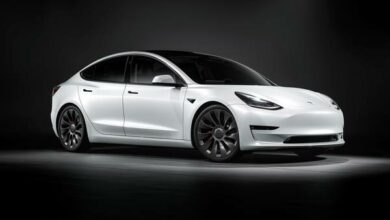Elon Musk to step down as Tesla chairman
 The Securities and Exchange Commission settled charges with Tesla CEO Elon Musk over his aborted bid to take the company private, with the billionaire remaining as the helm of the company but relinquishing his chairman title and getting slapped with a hefty fine.
The Securities and Exchange Commission settled charges with Tesla CEO Elon Musk over his aborted bid to take the company private, with the billionaire remaining as the helm of the company but relinquishing his chairman title and getting slapped with a hefty fine.
The SEC’s enforcement action brings to a conclusion a saga which began in early August, when Musk announced via Twitter that he had secured enough funding for a massive private buyout of Tesla. The original SEC complaint alleged that in doing so, Musk issued “false and misleading” statements, and failed to properly notify regulators of material company events.
As part of the settlement, which is still subject to court approval, Musk will also pay a civil penalty of $20 million and give up his role as chairman of the board for at least three years. Additionally, the SEC imposed a $20 million fine on Tesla itself, which will also be expected to appoint two new independent directors to the board.
“Musk tweeted on August 7, 2018 that he could take Tesla private at $420 per share — a substantial premium to its trading price at the time — that funding for the transaction had been secured, and that the only remaining uncertainty was a shareholder vote,” regulators said on Saturday.
However, “in truth, Musk knew that the potential transaction was uncertain and subject to numerous contingencies. Musk had not discussed specific deal terms, including price, with any potential financing partners, and his statements about the possible transaction lacked an adequate basis in fact,” they added.
On the day Musk made the surprise announcement, Tesla’s stock surged by over six percent — catching off guard the bearish class of investors with whom the billionaire has crossed swords in the past.
The quickest settlement in history’
The swiftness with which a deal was announced on Saturday was striking. A provisional settlement between the SEC and Tesla reportedly fell apart on Thursday, which led to regulators summarily filing suit. Carl Tobias, a law professor at the University of Richmond School of Law, said it may very well be “the quickest SEC settlement in history” that allows both sides to claim a semblance of victory.
According to Tobias, it appeard that “it was better for each to compromise and not drag out this dispute. All secured something they wanted and gave up something.”
With securities regulators frequently criticized for not imposing tighter regulation on companies, a Tesla settlement allows the SEC to look like “a strict enforcer that is protecting shareholders,” Tobias said to CNBC in an email. “Musk/Tesla continue to operate a successful company and perhaps behave better in the future. All are spared litigation costs and the bad publicity that could flow from prolonged litigation.”
Indeed, in recent days, some investors — many of whom have been wiling to discount Musk’s unconventional style in favor of his perceived vision — had begun to bail on the stock. Tesla’s shares, traded on the Nasdaq, closed down around 14 percent on Friday at $264.
A widely circulated New York Times interview last month, in which Musk detailed the “excruciating” personal toll of running the company, set off alarm bells and led to talk of Tesla’s directors getting him a second-in-command. Meanwhile, a steady stream of staff and executive departures have added to the sense of internal turmoil.
Musk’s prolific use of Twitter has created several high-profile headaches for him personally, as well as the company he founded. In settling the charges, regulators faulted Tesla for not exerting more control over Musk’s tweeting.
“The SEC also today charged Tesla with failing to have required disclosure controls and procedures relating to Musk’s tweets, a charge that Tesla has agreed to settle,” the agency said in a statement.
“The settlements, which are subject to court approval, will result in comprehensive corporate governance and other reforms at Tesla—including Musk’s removal as Chairman of the Tesla board—and the payment by Musk and Tesla of financial penalties,” it added.
Musk’s fierce war of words against short-sellers, or investors betting on the company’s stock to fall, was one of the reasons he cited when he first floated the idea of Tesla going dark. In settling with Musk, the SEC said Tesla’s board would be expected to “oversee” its founders communications with investors.
“The resolution is intended to prevent further market disruption and harm to Tesla’s shareholders,” added Steven Peikin, co-director of the SEC’s Enforcement Division, in a statement.



